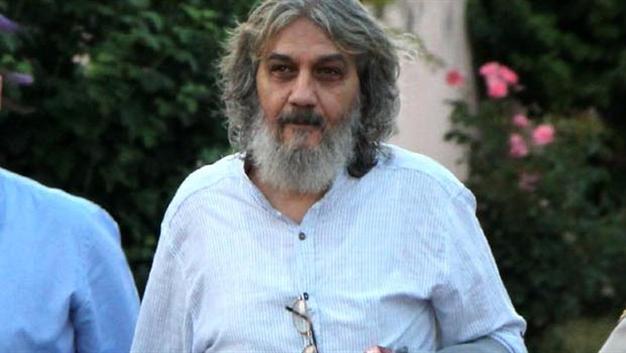After meeting Erdoğan, militant Islamist leader complains of ‘mind control’
ISTANBUL

Salih İzzet Erdiş was released on July 22 this year, after his lawyer’s demand for a retrial was accepted by the court.
The released leader of a militant Islamist group in Turkey has claimed that he is being targeted through “mind control,” soon after meeting President Recep Tayyip Erdoğan in Istanbul.Salih İzzet Erdiş, the leader of the Islamic Great East Raiders Front (IBDA-C) militant group, spoke at a conference titled “Absolute Justice” at the Haliç Congress Center in Istanbul on Nov. 30. According to presidential sources, Erdiş requested a meeting with Erdoğan after he learned that the Turkish president was coming to the congress center for another program scheduled for the same day.
“The president received him,” a source told Hürriyet, revealing the unscheduled meeting without elaborating on its content or duration.
Following the meeting, Erdiş took the stage at the conference for his first public speech after 16 years in prison. “While I am speaking you today, they are trying to wield influence on me through the ‘telegram method.’ As you know, this means mind control,” he said, warning the crowd that any negative words from himself could be “the words of the telegramists who attack me to control my mind remotely.”
Erdiş is not the first person President Erdoğan has met who is on guard against mind control attacks. In June 2013, news anchor Yiğit Bulut had claimed that foreign powers were trying to kill Erdoğan through telekinesis.
“In many centers there is work going on to kill Erdoğan from afar, through methods like telekinesis,” Bulut said at the time. He was appointed as chief economic adviser of Erdoğan the following month.
The released Islamist leader Erdiş, on the other hand, stressed in his speech that he is not afraid of “mind controllers.” As the crowd booed those who allegedly organized such “remote attacks,” the released IBDA-C convict raised his hand to calm them. “Leave them to me. I can fight them,” he said.
Erdiş, who is known by the alias “Salih Mirzabeyoğlu,” was arrested in 1999 and was initially sentenced to death on charges of “attempting to overthrow the constitutional order by use of arms.” His sentence was converted into aggravated life imprisonment in 2002 after the death penalty was abolished in Turkey. He was released on July 22 this year, after his lawyer’s demand for a retrial was accepted by the court.
‘Long live the commander!’
During the three-hour-long conference on Nov. 30, the crowd cheered with slogans like “Long live commander Mirzabeyoğlu!” and “Wherever the commander is, there we are!”
After his release, Erdiş had thanked then-President Abdullah Gül, then-Prime Minister Recep Tayyip Erdoğan and Justice Minister Bekir Bozdağ for the recent judicial changes that paved the way for the retrial of suspects sentenced during the Feb. 28, 1997 process, widely known as the “post-modern coup.”
IBDA-C claimed that it, together with al-Qaeda, was behind four bombings in Istanbul that killed at least 52 people in 2003, including the blasts at the British consulate and the Turkey headquarters of HSBC Bank.
Security experts had linked IBDA-C to Ansar al-Islam, a militant group based in Kurdish northern Iraq that is accused by Washington of being an al-Qaeda ally and a force behind attacks on occupying U.S. troops in Iraq.
















